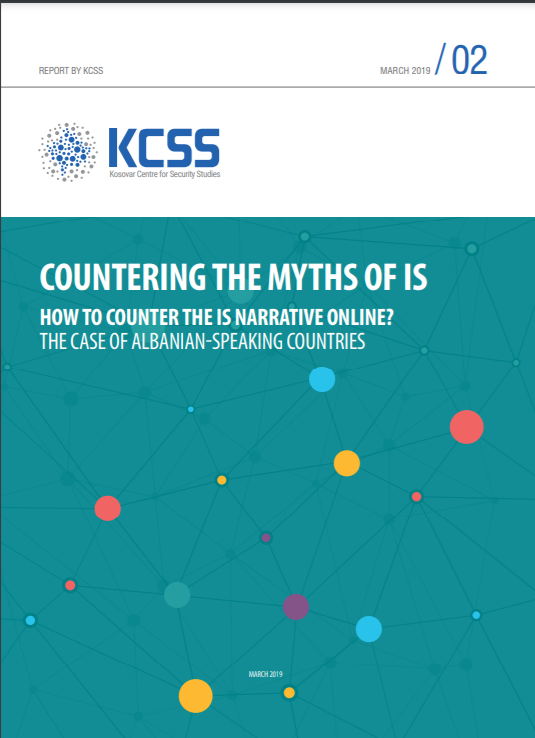13/03/2019

Kosovar Centre for Security Studies (KCSS)
Embassy of the Kingdom of the Netherlands in Prishtina
Rudina Jakupi & Vesë Kelmendi
KEY FINDINGS:
●The report identifies three major themes weaved in the violent extremist narrative of the “Islamic State” as delivered to audiences in Kosovo and other Albanian-speaking countries. They are: political, religious and gender power relations
● The report finds that government agencies have not put forth a strategic communication effort to counter violent extremism despite the centrality that they accorded to it in the Strategy. No consistent counter-narrative sponsored by public institutions or NGOs that continually are implementing projects to prevent violent extremism at the local level and central level Kosovo has been found.
● The Islamic Community of Kosovo (BIK), the body that regulates the religious affairs for the Muslim followers in Kosovo, lacks a coordinated, unison platform to provide with counter – narratives against extremist groups.
● Several imams of BIK have independently published their sermons and lectures on their personal social media platforms that could serve as counter – narratives.
● An effective counter message to the violent extremist narrative identified through this research is the narrative that can be provided by the jaded returned former fighters of the “Islamic State” and their family members.
● The report finds that platforms such as Fol Tash, a counter-narrative portal run by a group of community imams and Not in My Name, a social media endeavor of Radio Free Europe, did not gain traction in the websites and chat groups that continue to promote propaganda and advocate support for the “Islamic State.”
● As part of this study researchers tracked the habits of violent extremist sympathizers on social media. Out of 80 profiles and 100 pages of extremist groups monitored on Facebook neither “like” or “follow” or “share” any of the videos, texts or photos from the two counter - narrative sites. This signals that while these platforms may act as a preventative measure with the general public, they have failed to reach the supporters of extremist groups that continue to generate and spread extremist content in social media.
This report is published in the framework of the project "Youth in Action – Preventing and Countering Violent Extremism in Kosovo" supported by the Embassy of the Netherlands in Kosovo. The views expressed in this research are those of Kosovar Centre for Security Studies and do not necessarily represent those of the Embassy of the Kingdom of the Netherlands in Kosovo.